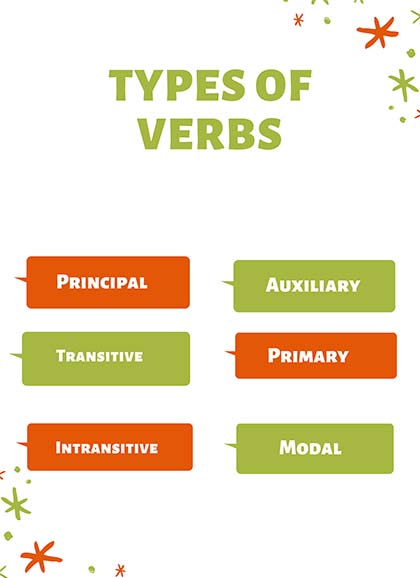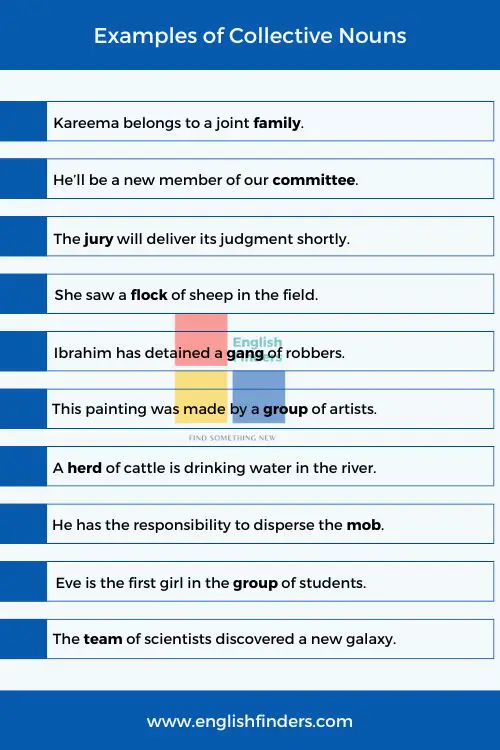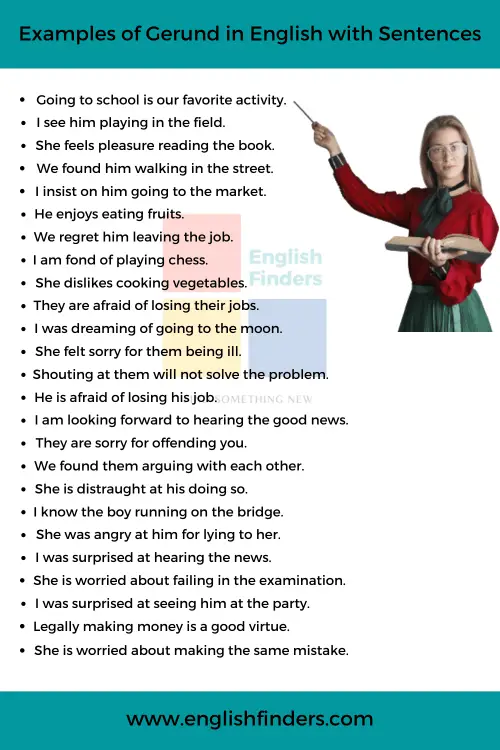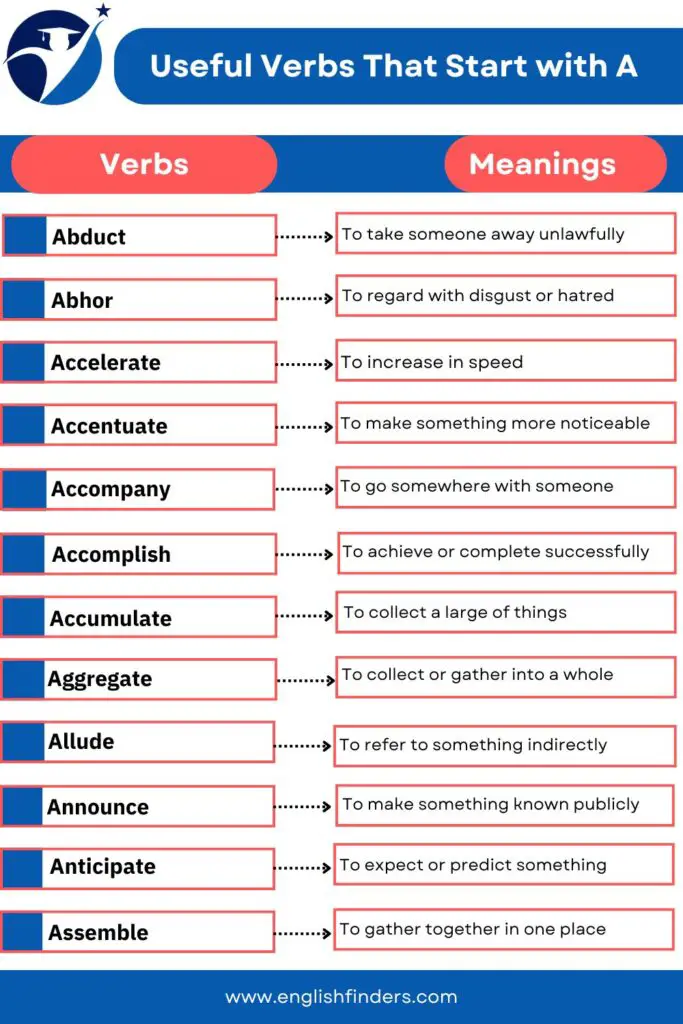Last updated on February 10th, 2025 at 09:47 pm
A verb is a word or part of speech that expresses an action, event, state, or doing something. In other words, we can say that a verb is the main backbone of a sentence, and a sentence can’t fulfill its demand without using a verb. However, a verb is a significant part of a sentence in English
Let’s see examples of different verb types: am, is, are, was, were, have, has, had, shall, will, buy, play, reach, has, had, shall, will, buy, play, reach, walk, etc. Verbs are marked in bold for easy identification:
- I am going to visit a natural place.
- He is an intelligent person, for no doubt.
- A group of dogs is attacking the cat.
- She did not like to express her feelings.
- They were going to arrange a party.
- I have a younger sister.
- He has left the place.
- The boys had some beautiful memories of their childhood.
- I shall buy a pen.
- He will pay the price for his misdeed.
- The boys play badminton.
- Ultimately, the man has reached the station.
- Walking is an excellent physical exercise for all human beings.
Types of Verbs in English grammar
Quick Navigation
Verbs are divided into two main types. Today, we will discuss these two types of verbs, their examples, and sub-categories. These two verbs are:
- Principal verbs
- Auxiliary verbs
Principal Verbs
A verb that is used independently in a sentence without taking any assistance from other verbs is called a principal or main verb. Let’s see some examples of the principal verbs with sentences:
- The boy looks very handsome.
- He plays cricket with his friends.
- My father gives me a new laptop.
- She is drawing a picture.
- I love my parents so much.
- The members of the parliament take the oath for the country.
- The thief has escaped from custody.
Principal verbs are of two types. They are:
1. Transitive verbs
2. Intransitive verbs
1. Transitive Verbs
A verb that refers to action and links with the subject and object in a sentence is called a transitive verb. Transitive verbs need an object to complete their proper meaning. For example:
- My mother is preparing to cook.
- He has bought a car.
- The girls want a new friend.
- The bird looks good.
- Jimmy is going to his school.
Note: Every transitive verb has an object to complete the sentence in the above sentences. So we can say a transitive verb must need an object to fulfill its meaning and finish the sentence. Now you may ask me what an object is? If you ask a verb “whom” or “what,” and the answer you get is an object. I hope you can find an object quickly.
2. Intransitive Verbs
A verb that refers to action and links with the subject but does not have an object is called an intransitive verb. Intransitive verbs don’t need an object to complete their proper meaning.
But some intransitive verbs take objects after them as similar to the verb. These types of objects are called cognate objects. Examples of intransitive verbs are given below:
- The boys are singing.
- The older man is smiling.
- Jack is very famous for dancing.
- She is ready for sleep.
- Nathan sang a beautiful song.
- The boy dreamt a sweet dream.
Note: First fours sentences don’t take objects to complete the sentence but later these two sentences take objects which similar to the verbs.
Auxiliary Verbs
A verb that can’t be used independently but rather helps the main verb to form a sentence is called an auxiliary or helping verb. Auxiliary verbs are of two types. They are:
1. Primary auxiliaries and
2. Modal auxiliaries
1. Primary auxiliaries
A verb used to help the main verb to complete the meaning of a sentence is called a primary auxiliary verb. Primary auxiliaries can be changed their form according to the use of different tenses. Examples of the primary auxiliaries are given below:
- I am going to the new coffee shop.
- Kitty is going to watch the movie.
- They are doing their task correctly.
- I have written a book.
- He has been ill since morning.
- She left the place yesterday.
- I was enjoying a football match.
- Jonny had done the job.
- Katherine had been going to pray for her parents.
- I will do it.
- He will be joining us in the meeting.
- They will have the power to change the incident.
- My father will have been visiting the place.
Note: In some cases, a primary auxiliary verb can be used as a principal verb. For example:
- I am good at the English language.
- He is a brilliant boy.
- They are in school.
- Mathew has a pen.
- I have a best friend. Etc.
2. Modal auxiliaries
An auxiliary verb is a type of verb that expresses the mood or manner in which the action is done is called a modal auxiliary. In other words, Modal auxiliaries express possibility, ability, permission, or obligation. For example:
- I can do the job.
- He could go.
- You may leave now.
- John might solve the problem.
- My brother should play a fundamental role in my family.
- I would tell the story.
- You must obey your responsibility.
- I used to sleep.
Note: The Modals are different from other auxiliaries. They don’t permit to change the main form of a verb. such as; do-did-done, have-had-having, be-been-being etc.
Conclusion
From the above discussion, we conclude that the verb is part and parcel of the parts of speech and English grammar. Further, verbs also play a significant role in forming a sentence perfectly.
Verb Quiz

Azizul Hakim is the founder & CEO of englishfinders.com. He is a passionate writer, English instructor, and content creator. He has completed his graduation and post-graduation in English language and literature.





I came across this board and I find It really useful & it helped me out a lot
Thanks! Share it more.